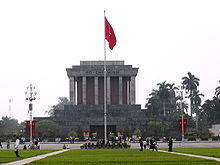I think most people will find this hard to believe. We all know about Haiti, right? One of the poorest, most backwards and unfortunate nations in the Western hemisphere, recently hammered by a massive earthquake, as if they didn’t have enough problems. And, come on, don’t you just know in your heart of hearts that it’s all their own fault?
There are scandals and then there are scandals.
Haiti was founded in the 17th century as a slave colony by the French, who rounded up Africans and hauled them over to this island to harvest the sugar cane, coffee, cocoa, cotton, and indigo, for their French masters. The French masters, out-numbered by the slaves by a factor of 10, use sheer brutality to keep them in line– the trade was very lucrative. This worked for a time. Conditions were so primitive that the slave population actually declined most years, and more slaves had to be imported from Africa or America.
The slaves themselves had classes: the mixed blood slaves, at the time of rebellion, may well have thrown their lot in with their masters, with whom they had more in common, than with the other slaves.
In 1791-93, the slaves revolted. The rebellions were complicated, with Britain and Spain joining in at times, but the result was supposed to be the end of slavery. After many diversions, on January 1, 1804, Haiti was declared a free republic.
Napoleon… gave up on his Western colonies but he sent warships to the harbour of Port au Prince and demanded that Haiti compensate France for the loss of it’s property– the slaves, and other properties– to the tune of 150 million gold francs. Excuse me? You kidnap us. You flog us and beat us. You murder our children. You make us slave away day after day in the sugar cane, back-breaking work. If we rebel, you torture and burn our leaders. We finally liberate ourselves… and then you demand that we pay you to not kill us with your warships.
It’s like the infamous burglar who injured himself when he stepped a child’s toy in the driveway and sued the family he had just robbed. And won. At least, according to urban myth.
Well, Haiti did not have any money. But here’s a lesson for the ages– pay attention, American consumers!– the French banks generously offered to lend the Haitians the money to pay back the French slave-owners. An incredibly generous gesture on the part of the former slave-masters!
As anyone with a credit card and low income knows, large personal debt is slavery by other means.
President Jean-Pierre Boyer signed this agreement, which ensured that one of the richest countries in the world now could now drain the poorest country in the world of whatever remained of it’s meager wealth… One question– why on earth should the future governments of Haiti have honored this agreement? Why didn’t they just say that Boyer did what any man with a gun to his head would do: say whatever he had to say to escape the threat of death. It should have been no more binding than a kidnapping victim’s pledge not to call the police after being released.
We know why: because the WTO and other international bodies of institutional economic power would have brought the hammer down and completely destroyed the remains Haiti’s economy, the way the U.S. threatened to destroy the economies of France and Britain during the Suez Crisis of 1956.
How long do you think this insanity would continue? How about from 1825 to 1947?
So here’s a new definition of chutzpah? You’re a slave owner and when your slaves finally rebel and obtain their freedom, you demand that they pay you for the expense of feeding and clothing them during all those years of enslavement.
There has been a movement– naturally– to persuade France to repay the approximately $21 billion it extorted from Haiti over more than 100 years, impoverishing the nation for– it seems– eternity.
President Clinton, apparently, did apologize for U.S. interference in Haitian affairs in 2004. The U.S. insisted that Haiti respect regional “free trade” agreements, which means, in practice, U.S. subsidized corn gets dumped on your market while we accept all the cars you can manufacture.

